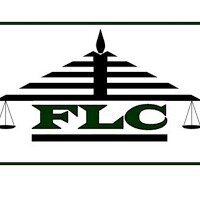Best Real Estate Lawyers in Rwanda
Share your needs with us, get contacted by law firms.
Free. Takes 2 min.
Free Guide to Hiring a Real Estate Lawyer
Or refine your search by selecting a city:
List of the best lawyers in Rwanda
About Real Estate Law in Rwanda:
Real Estate in Rwanda is governed by a set of laws and regulations that ensure the protection of property rights and promote sustainable development. The legal framework for Real Estate in Rwanda is robust, transparent, and efficient, making it an attractive investment destination for both local and foreign investors.
Why You May Need a Lawyer:
There are several situations where individuals may require legal assistance in Real Estate in Rwanda, such as property disputes, land acquisition, lease agreements, property development projects, and compliance with zoning regulations. A lawyer can provide expert guidance and representation to ensure that your rights are protected and that you are in compliance with all relevant laws and regulations.
Local Laws Overview:
Key aspects of Real Estate law in Rwanda include the Land Law, which governs the ownership, use, and transfer of land, as well as the Construction Law, which regulates building permits, construction standards, and environmental impact assessments. Additionally, the Land Tenure policy in Rwanda promotes security of land tenure, transparency in land transactions, and equitable access to land for all citizens.
Frequently Asked Questions:
1. Can foreigners own property in Rwanda?
Yes, foreigners can own property in Rwanda, subject to certain restrictions and conditions outlined in the law.
2. How can I verify the ownership status of a property in Rwanda?
You can verify the ownership status of a property by conducting a search at the Land Registry or Land Office in the district where the property is located.
3. What are the requirements for obtaining a building permit in Rwanda?
Requirements for obtaining a building permit in Rwanda include submitting building plans, environmental impact assessments, and proof of ownership or land use rights.
4. What are my rights as a tenant in Rwanda?
As a tenant in Rwanda, you have the right to peaceful enjoyment of the property, fair rental terms, and protection against unlawful eviction.
5. How can I resolve a property dispute in Rwanda?
Property disputes in Rwanda can be resolved through negotiation, mediation, or litigation in the courts.
6. Are there any tax implications to consider when buying property in Rwanda?
Yes, there are tax implications to consider when buying property in Rwanda, such as property transfer tax, stamp duty, and capital gains tax.
7. What is the process for transferring ownership of a property in Rwanda?
The process for transferring ownership of a property in Rwanda involves executing a sale agreement, paying the necessary taxes and fees, and registering the transfer at the Land Registry.
8. Are there any restrictions on the use of land in Rwanda?
Yes, there are restrictions on the use of land in Rwanda, such as zoning regulations, environmental conservation laws, and land tenure policies.
9. Can I lease property in Rwanda as a foreigner?
Yes, foreigners can lease property in Rwanda, subject to the terms and conditions agreed upon with the property owner.
10. How can I protect my property rights in Rwanda?
You can protect your property rights in Rwanda by ensuring that all land transactions are properly documented, registered, and compliant with the law.
Additional Resources:
For more information on Real Estate law in Rwanda, you can visit the Rwanda Land Management and Use Authority website or consult with a local law firm specializing in Real Estate.
Next Steps:
If you require legal assistance in Real Estate in Rwanda, we recommend seeking advice from a qualified lawyer with experience in property law. The lawyer can provide guidance on your rights, obligations, and options for resolving any legal issues you may encounter.
Lawzana helps you find the best lawyers and law firms in Rwanda through a curated and pre-screened list of qualified legal professionals. Our platform offers rankings and detailed profiles of attorneys and law firms, allowing you to compare based on practice areas, including Real Estate, experience, and client feedback.
Each profile includes a description of the firm's areas of practice, client reviews, team members and partners, year of establishment, spoken languages, office locations, contact information, social media presence, and any published articles or resources. Most firms on our platform speak English and are experienced in both local and international legal matters.
Get a quote from top-rated law firms in Rwanda — quickly, securely, and without unnecessary hassle.
Disclaimer:
The information provided on this page is for general informational purposes only and does not constitute legal advice. While we strive to ensure the accuracy and relevance of the content, legal information may change over time, and interpretations of the law can vary. You should always consult with a qualified legal professional for advice specific to your situation.
We disclaim all liability for actions taken or not taken based on the content of this page. If you believe any information is incorrect or outdated, please contact us, and we will review and update it where appropriate.
Browse real estate law firms by service in Rwanda
Rwanda Attorneys in related practice areas.
Browse real estate law firms by city in Rwanda
Refine your search by selecting a city.














